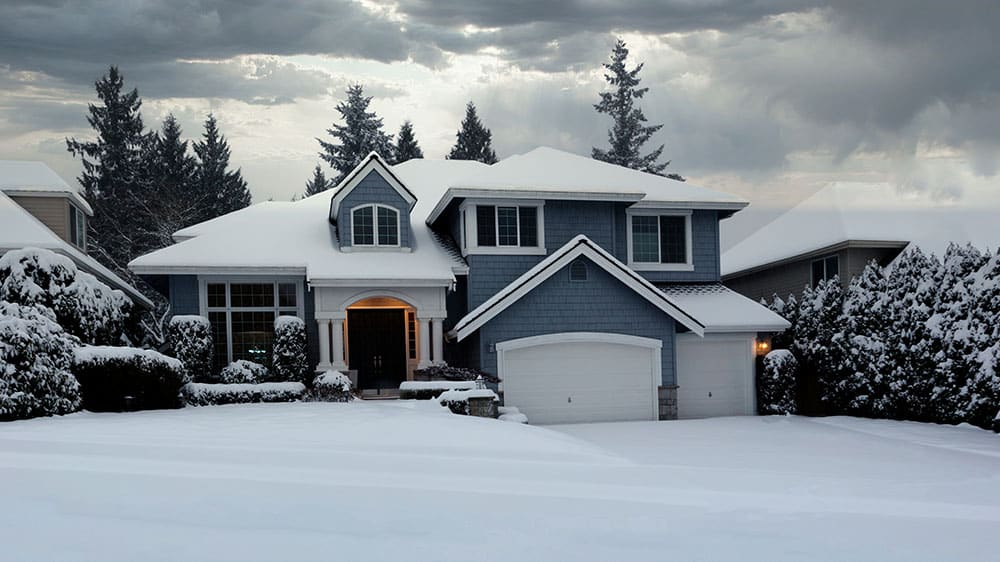
Of all the broadband types, fiber-optic internet offers the fastest and most reliable connectivity. However, weather conditions can sometimes affect its performance. Explore how different weather conditions -particularly cold temperatures and severe storms- can impact your fiber internet connection, and learn tips to safeguard your network.
What Is Fiber-Optic Internet?
Fiber-optic internet works by transmitting data as pulses of light through ultra-thin strands of glass or plastic. This technology delivers ultra-fast speeds, low latency, and excellent reliability compared to traditional copper cables. It is also more resilient in extreme weather than cable and satellite. For a detailed overview of the technology behind fiber, read “What Is Fiber Internet?“
How Weather Impacts Your Fiber Internet Connection
Can Fiber Optic Cables Freeze?
Fiber optic cables are engineered with robust protective layers that make them resilient to cold temperatures. While the cables themselves rarely freeze, moisture can enter connectors or conduits. When temperatures drop, this moisture may freeze and expand, potentially damaging connectors and degrading your signal.
Does Cold Weather Affect Fiber Optic Connectors?
Connectors are the vulnerable points in a fiber network. Studies and industry research (from sources such as the FCC and IEEE) indicate that extreme cold can affect connectors by causing water ingress to freeze, leading to physical deformation. To counter this, many installations now use ruggedized, weatherproof connectors designed specifically for harsh environments.
Can Cold Weather Affect Overall Internet Performance?
While fiber cables are built to withstand severe weather, any damage to connection points or outdoor equipment can reduce overall performance.
How to Protect Your Fiber Connection
Even though fiber is a robust technology, you can take steps to protect your connection in adverse weather conditions.
1. Professional Installation and Proper Burying
Ensure that fiber cables and connectors are installed professionally, ideally buried below the frost line, to reduce exposure to freezing conditions. For more installation best practices, visit our post, “How Is Fiber Internet Installed?“
2. Use of Ruggedized, Weatherproof Connectors
Opt for installations that use ruggedized connectors. These are specifically designed to prevent moisture seepage and withstand sub-zero temperatures.
3. Regular Maintenance and Inspections
Scheduling periodic inspections helps detect early signs of weather-related wear or damage. Prompt maintenance can prevent minor issues from escalating into major service disruptions.
4. Protective Enclosures
In areas where cables or connectors are exposed, additional protective enclosures or weather shields can provide an extra layer of defense.
Comparing Weather Effects on Fiber Versus Other Technologies
Fiber-optic internet is generally less affected by weather than traditional copper-based or satellite connections. While wireless systems might experience signal fluctuations during heavy rain or snow, fiber’s main vulnerability lies in its connection points. For a detailed comparison of broadband technologies, read “The Difference Between Fiber and Cable.”
Additional Insights from Research
Recent research from the FCC and IEEE, as well as insights from the U.S. Department of Transportation, indicate that while fiber is highly resilient, extreme weather events (such as hurricanes, heavy rain, and severe storms) can physically damage outdoor installations. Protective measures like redundant routing and secure conduits are recommended to minimize disruptions during adverse weather.
Frequently Asked Questions
Does weather affect fiber internet?
Extreme weather, particularly cold and severe storms, can affect fiber internet by impacting connectors and outdoor infrastructure – even though the cables themselves are highly resilient.
Does cold weather affect fiber internet?
In rare cases, if moisture infiltrates connectors and then freezes, it can lead to signal degradation or intermittent connectivity.
Can fiber optic cable freeze?
The fiber cable is designed with protective layers that prevent freezing, but exposed connectors may be vulnerable if not properly sealed.
Does cold weather affect Wi-Fi?
Indirectly, yes. Damage to fiber connectors or outdoor equipment can result in reduced overall performance, which in turn may affect your Wi-Fi network.
Fortify Your Connection with Fiber Internet from Mercury Broadband
Weather conditions, particularly cold temperatures and severe storms, can influence your fiber internet connection — primarily through their impact on connectors and exposed equipment. However, with proper installation, the use of ruggedized components, and regular maintenance, these risks can be effectively mitigated.
At Mercury Broadband, we’re committed to providing resilient fiber and fixed wireless solutions that keep your connection stable regardless of the weather. Whether you live in Indiana, Kansas, Michigan, Missouri, or Ohio, our expert team is here to ensure you enjoy uninterrupted high-speed connectivity.
